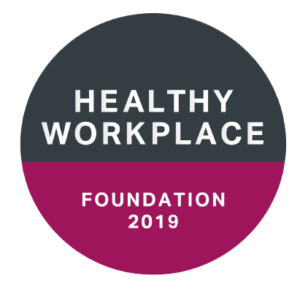Social networks and online communities now form a huge part of how we communicate, with almost limitless reach when it comes to making connections or accessing information. But have they really made things any better? The answer to this question isn’t a matter of opinion. We know social networks often function to validate our own opinions rather than to engage with new ones or stimulate real discourse. One only needs to look at the most recent elections in the US and UK to see the influence that social networks can have on reaffirming political beliefs and values.
So, why am I raising it? It feels to me there is still a key role for networks to play but perhaps beyond their most common, virtual form. It is their role of supporting more conventional or traditional ways of bringing people together in a physical space that they really come into their own – as a means of promoting the sharing of ideas and encouraging debate and discussion in a more authentic and personal way. This need not be limited to a political context but happily extend to the physical activity and sport sector too.
One good example is The London Physical Activity for Health (PAfH) Network, which has been running since 2009 (and therefore I can take little credit for it!). The Network is a group that meets three times a year and seeks to promote and raise the profile of physical activity; to strategically influence key bodies and strategies; to share good and innovative practice; to enable collaboration and much more. In simple terms, it provides an arena for discussion and debate on some of the key emerging issues from within our sector. Popular themes over the last few years have included: approaches to commissioning physical activity; public health workforce development; active environments: planning and transport; PHE One You; social prescribing; NHS Healthy Towns; GP Clinical Champions Programme, London Health and Care Devolution and the London Mayoral strategies. The network also draws from a broad range of stakeholders with representation from, London Sport; Public Health England; NHS Healthy London Partnership; GLA; Transport for London; Sport England; Local Authority Public Health & Leisure; London Councils as well as other NGBs, voluntary and community sector and educational organisations. The Network has developed in the last year and is now run in partnership with the Institute of Sport Exercise and Health who also host the network meetings. In 2017 the network also established a formal link with the London Association of Directors of Public Health which, importantly, embeds physical activity in the work of public health at a local level.
The Physical Activity for Health Network is consistently led by the views of the membership to help determine its approach and to shape future content. In the most recent survey of the membership, 87% of them said they were satisfied with the Network, while 67% said that being part of the it had a direct influence on their own work. This is very encouraging. For me, one response stood out: 88% of members said that existing work commitments impacted their ability to attend network meetings. While the current financial climate makes this an unsurprising finding it does raise concerns about opportunities for people to have time to share experiences and learn from others. Perhaps, therefore, there is a point here about protecting time to ensure that we are not limiting exchange of ideas and innovation. The PAfH Network is by no means perfect but what it does is provide a platform and environment to share experiences a time when we arguably need to do more of this.





